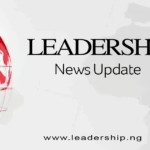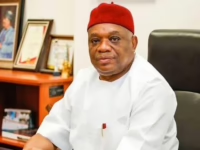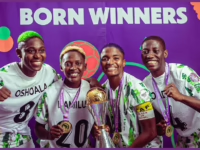San Miguel Chicaj, Guatemala – In the secluded highlands of Baja Verapaz, Indigenous women are reclaiming their empowerment through a fundamental yet transformative resource: their own voices. For countless generations, these women have been the pillars of their families and custodians of cultural heritage, often placing their personal needs at the bottom of their priorities.
Today, the emergence of “Well-Being Clubs,” an initiative backed by the International Organization for Migration (IOM), is breaking the silence, fostering self-worth, emotional recovery, and resilience among these women.
“Many women endure a deficit of affection and respect,” shares Reina from San Miguel Chicaj. “It’s essential for us to understand ourselves, appreciate our value, and nurture our self-confidence.”
San Miguel Chicaj, home to approximately 33,000 residents, lies within the Achi Maya region, where agriculture and traditional weaving sustain age-old customs. However, geographic isolation often renders many women invisible. “Our remote villages sometimes cause us to be forgotten,” notes Norma, a young participant in the program.
The Well-Being Clubs create welcoming environments where women can openly express their feelings, learn techniques to manage stress, and build self-assurance-all conducted in their native languages, Achí and Kaqchikel. Over 500 women and girls from Baja Verapaz and Chimaltenango have engaged in these sessions, which are facilitated by community members.
“It was a wonderful experience,” reflects Norma. “Despite having household duties, we dedicated time to ourselves and shared knowledge with one another.”
Under the guidance of facilitator Vanessa Canahuí, more than 300 women in San Miguel Chicaj participated in a series of 10 sessions conducted in Achí. Meanwhile, in Santa Apolonia, Chimaltenango, 200 women took part in activities held in Kaqchikel, the language spoken by 90% of the local population. “Speaking in Kaqchikel makes our voices resonate more deeply,” one participant observed.
These clubs blend emotional support with community empowerment, tackling challenges linked to migration vulnerabilities. Participants engage in practices such as gratitude journaling, emotional regulation techniques, and trust exercises-like drawing while blindfolded with guidance from peers. “This activity reminded me of our reliance on one another and the importance of mutual support,” says Jacqueline, a member of the group.
Through attentive listening, affirmation, and mutual encouragement, women bolster their self-esteem and reaffirm their rights. Ortensia explains, “Some neighbors hesitate to join and remain at home tending to chores. I motivate them to participate because women have rights and are vital to our community’s wellbeing.”
This program is part of a broader regional effort spanning Guatemala, Honduras, and El Salvador, aimed at empowering women in areas with elevated risks of irregular migration. Funded by the Government of Canada, it supports women in reclaiming their voices and, consequently, their futures.
“When a woman discovers her voice, she uncovers her strength,” Jacqueline affirms. “And when this empowerment spreads within her community, it sparks widespread transformation.”
Photo gallery courtesy of the International Organization for Migration.






















